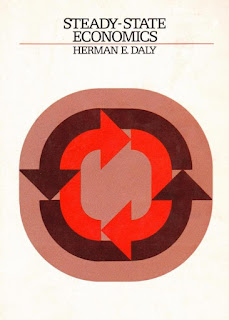Mission Possible
 The deepest and most memorable events of my life have been in various spiritual pursuits, and the best are the ones that involved travel. Pilgrimage is a time-honored practice in any religious tradition, whether it is to Mecca, the "Holy Land," to various mountaintops and bodies of water, Homer's Odyssey, or even a vision quest. The most memorable of my travels is the four months I spent in India, from late October 1977 to the end of February 1978. I was living in the Siddha Yoga ashram of Swami Muktananda in Ann Arbor, Michigan, and it was a rite of passage to spend time with the guru in India.
The deepest and most memorable events of my life have been in various spiritual pursuits, and the best are the ones that involved travel. Pilgrimage is a time-honored practice in any religious tradition, whether it is to Mecca, the "Holy Land," to various mountaintops and bodies of water, Homer's Odyssey, or even a vision quest. The most memorable of my travels is the four months I spent in India, from late October 1977 to the end of February 1978. I was living in the Siddha Yoga ashram of Swami Muktananda in Ann Arbor, Michigan, and it was a rite of passage to spend time with the guru in India.As with life in general, the most powerful and affecting experiences on spiritual quests come unexpectedly, and in surprising ways. I was all eyes and ears as I set out on my sojourn to the land of enlightenment. The flight to India began in New York, where I joined a tour group of about 100 Siddha Yoga followers on an Air India flight to Bombay (now called Mumbai). The flight itself was exotic, with elaborate meals served by beautiful flight attendants dressed in saris, with red bindis on their foreheads.
 After stops in London, Rome and Delhi the plane finally arrived in Bombay, where we went through customs. Then we boarded buses for Ganeshpuri, about fifty miles north of Bombay, where the Muktananda ashram is located.
After stops in London, Rome and Delhi the plane finally arrived in Bombay, where we went through customs. Then we boarded buses for Ganeshpuri, about fifty miles north of Bombay, where the Muktananda ashram is located. The enthusiasm of the group was palpable as the buses departed, but it didn't last. On the way out of Bombay we passed mile after mile of slums - long thatched huts that leaned from years of standing up to the weather. The people seemed happy enough, but the poverty was stark, so stark that the bus I rode in became silent as everyone just looked out the windows in dumbfounded awe at the enormity of the scene we were witnessing. It was so overwhelming I couldn't even generate an opinion about it.
The enthusiasm of the group was palpable as the buses departed, but it didn't last. On the way out of Bombay we passed mile after mile of slums - long thatched huts that leaned from years of standing up to the weather. The people seemed happy enough, but the poverty was stark, so stark that the bus I rode in became silent as everyone just looked out the windows in dumbfounded awe at the enormity of the scene we were witnessing. It was so overwhelming I couldn't even generate an opinion about it.This memory comes to mind from time to time, and seems to be returning more often these days. Yesterday is a good example. I was listening to Democracy Now on the radio, and the show's tone is one of outrage after outrage, as if the world will change if we could just get to some critical mass of outrage. Good luck with that. One of the latest outrages aired was how the Olympics have been appropriated by corporate interests, and England has been militarized in its zeal to accommodate the games.
At this point my tilt reaction set in. It was too much, and I went into outrage overload. It doesn't take much these days. As in the ride out of Bombay, I was beyond opinion, stunned at the enormity of evil on the planet. Supposedly, if you aren't outraged you aren't paying attention, but there is such a thing as too much attention. Or the wrong kind of attention.
 It has been a long, hot summer in Wisconsin. We are in a drought, and the temperature has been steadily in the high 90s, with several days over 100 degrees. Whether we call it global warming or climate change, something is up. Records for high temperatures are being broken throughout the country. The New York Times is raising the question of whether we are reaching a climate tipping point, where it is too late to reverse the effects of fossil fuel emissions. Greenland is having a huge ice melt. Now it is being reported that severe storms may be threatening the ozone layer.
It has been a long, hot summer in Wisconsin. We are in a drought, and the temperature has been steadily in the high 90s, with several days over 100 degrees. Whether we call it global warming or climate change, something is up. Records for high temperatures are being broken throughout the country. The New York Times is raising the question of whether we are reaching a climate tipping point, where it is too late to reverse the effects of fossil fuel emissions. Greenland is having a huge ice melt. Now it is being reported that severe storms may be threatening the ozone layer.Conspicuous in their absence in doing anything about these conditions, or even talking about them, are elected representatives, otherwise known as politicians. Why would this be? It's simple. They have no answers, and to mention climate change is to call attention to their own failures. Their interests lie elsewhere, mostly having to do with what will get them elected or re-elected.
It is pointless to whinge endlessly about politicians. It will not make them behave any differently. What might help is to recognize the nature of the mass system, that its very nature is to reward hierarchies of bureaucracies, whether in business, government or even the nonprofit sector. The mass system can be "reformed" to a certain degree, but its nature is to facilitate bureaucracies. Just this week author and journalist Chris Hedges wrote about the banality and evil of careerist bureaucrats.
If the situation is so dire, and so intractable, the question seems to be less of what to do about it than how to be about it. For sure the mass system should be resisted, and I have resisted it from childhood. Unlike the Borg in Star Trek, resistance is not futile, assimilation is not inevitable. But resistance is not enough.
 The best example I know of in how to be about our common predicament is the Dalai Lama. If anyone deserves to be outraged, it is him. He has been forced from his country, and has had to witness the wholesale oppression and murdering of his people for decades. Yet he does not hate, and does not show outrage. Instead he exhibits forbearance, patience and compassion.
The best example I know of in how to be about our common predicament is the Dalai Lama. If anyone deserves to be outraged, it is him. He has been forced from his country, and has had to witness the wholesale oppression and murdering of his people for decades. Yet he does not hate, and does not show outrage. Instead he exhibits forbearance, patience and compassion.There are other examples. Thich Nhat Hanh, the monk from Vietnam, also exhibits steadfastness, calm and compassion over a lifetime of difficulties.
Change is coming. No bureaucrat or politician can stop it. They are just men, mortal men, and events will overtake. Our task, should we decide to accept it, is to stay alive first, do what we can to facilitate change, and be available for change. The better we are about it, the better will be the change.
_______________________________________________
Here are a few American gurus mixing it up. I used to know three of them. What a long, strange trip it's been. Here's a traveling song. Enlightenment, don't know what it is.
 The Steady State approach to Economics has yet to be embraced by orthodox economists, but you can read about it yourself. Here's a review of pioneering steady statist Herman Daly's work. One of the key chapters of his book Steady State Economics can be found here.
The Steady State approach to Economics has yet to be embraced by orthodox economists, but you can read about it yourself. Here's a review of pioneering steady statist Herman Daly's work. One of the key chapters of his book Steady State Economics can be found here.  Small is Beautiful is a book that has been neglected by the Economics profession, but that doesn't mean you can't read it. In the coming years, when meaningless and fake attempts to revive the economy have run their course and failed, Small is Beautiful will likely gain new interest.
Small is Beautiful is a book that has been neglected by the Economics profession, but that doesn't mean you can't read it. In the coming years, when meaningless and fake attempts to revive the economy have run their course and failed, Small is Beautiful will likely gain new interest.In this interview with Charles C. Mann we are told how the mass system developed in the Western Hemisphere. Understanding how we got to this level of silliness informs how to get out of it. Meanwhile, the established news media ask questions like this. Careerists.
This episode of Frontline, which aired Tuesday, might arouse some outrage, but in the context of the unsustainability of our infinite growth economic system, I'm not overly concerned. Destroying the ecosystem is no longer an option. It never was, but the mass system thrives on destruction. It will thrive no more.
Here's a song for some inspiration.
It's O.K. to cry sometimes.
Here's something curious. If true, it shouldn't be a surprise. Corruption and secrecy are intrinsic in the nature of the mass system. Scenarios like this are inevitable. As economists are wont to say, our "leaders" behave as if they have been doing other than what they say they have been doing. Indeed, the extreme reaction of the Bush Criminal Regime to the "911" attacks brought Shakespeare to mind: "The lady doth protest too much, methinks."
The zeal for torture in particular was not justifiable for preventing "terrorism," but seems motivated purely by the need to terrorize and to extract "confessions." It can also be seen as a test of the country's stupidity and gullibility, and in this vein the "American" people passed the test with flying colors - red, white, and blue.
__________________________________________
Update, August 4: Necessity being the mother of invention, an organization has been formed to change the way Economics is studied, validated, and used to serve human civilization. It is called the New Economics Institute, and it also is aimed at helping usher in a different Economic system, one based on the ideas of E.F. Schumacher. Not a moment too soon. The article also appears in Common Dreams.

